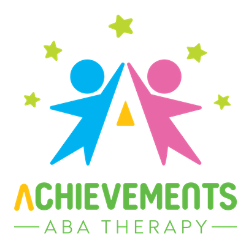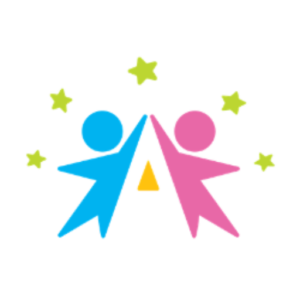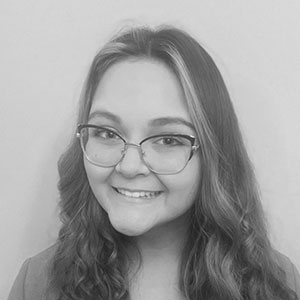Autism Statistics in North Carolina
Introduction: Autism Statistics in North Carolina
Autism Spectrum Disorder (ASD) is a complex neurodevelopmental condition. It significantly affects individuals’ social skills, communication, and behavior. Increasing awareness has surged and drives research, diagnosis and support efforts. This post examines North Carolina’s autism statistics, exploring prevalence rates, demographics, diagnostic trends and available resources.
Autism Prevalence in North Carolina:
According to the Centers for Disease Control and Prevention (CDC), the prevalence of autism in the United States is approximately 1 in 54 children, as of the latest data available. In North Carolina, the prevalence mirrors this national trend, with a steady increase in diagnosed cases over the past decade. The North Carolina Department of Health and Human Services (NCDHHS) reports that approximately X% of children in the state have been diagnosed with autism, representing a significant portion of the population.
Demographic Trends of Autism in North Carolina:
Autism does not discriminate based on ethnicity, socio-economic status, or geographic location. However, research reveals that disparities exist in access to diagnosis and support services . Research shows varying autism rates among difference racial and ethnic groups. African American and Hispanic children often receive diagnoses later than their White counterparts. This emphasizes the need for culturally sensitive approaches to diagnosis and intervention.
Diagnostic Trends of Autism and Early Intervention:
Early diagnosis and intervention are crucial for improving outcomes for individuals with autism. North Carolina prioritizes early diagnosis and interventions for Autism. Screening programs target developmental delays and signs. These screening programs collaborate with pediatricians and healthcare providers to streamline process. They identify developmental delays and signs of autism at an early age. Additionally, there is a push for increase training for educators and healthcare professionals. These trainings will help them recognize the early signs of autism and provide appropriate support.
Educational and Support Services in North Carolina:
North Carolina offers a diverse education and support services for individuals with Autism. There are also supports to help their families. The state’s public school system provides special education programs. These programs cater to the distinct needs of students with Autism. They offer personalized education plans (IEPs). They also offer access to specialized therapies and resources. Moreover, various incredible non-profit organizations and advocacy groups operate statewide. They offer support groups, counseling services and community based programs. These programs are tailored to individuals with autism and their families.
Below is a list of these incredible organizations.
Autism Society of North Carolina (ASNC):
ASNC is a non-profit organization that offers a variety of programs and services for children with autism and their families. They provide support groups, advocacy servicey, community-based programs and educational resources across the state of North Carolina.
TEACCH Autism Program of University of North Carolina:
The TEACCH Autism Program is situated at the University of North Carolina at Chapel Hill. It provides clinical services, training and research for individuals with autism and their families. They offer diagnostic evaluations and parent training programs. They also offer support services tailored to the needs of each individual with Autism in North Carolina.
North Carolina Autism Society (NCAS)
North Carolina Autism Society (NCAS) is dedicated to enhancing the well-being of individuals with autism and their families. They offer advocacy, education and support initiatives. They offer resources, training workshops and community events. The goal of these resources is to increase awareness and offering aid to individuals impacted by autism.
Easterseals UCP North Carolina and Virginia
Easterseals UCP offers a variety of services for individuals with autism and other disabilities in North Carolina. This includes early intervention programs, behavioral therapy and family support services. Additionally, they operate multiple centers across North Carolina. They provide comprehensive support to support individuals and families.
Autism Charlotte
Autism Charlotte is an incredible organization that serves the Charlotte area. It provides support groups, workshops and social activities for individuals with ASD and thier families. Additioanlly, they offer advocacy services and resources for navigating autism challenges.
The Autism Center at University of North Carolina (UNC) Health Care:
Autism Society of North Carolina – Charlotte Chapter:
Autism Society of North Carolina- Charlotte Chapter is a local chapter of the Autism Society of NOrth Carolina. It provides support groups, social activities and educational workshops. This chapter also provides resources for individuals with autism and their families in North Carolina.
Camp Royall:
Camp Royall is operated by the Autism Society of North Carolina. It is a residential summer camp and year-round facility that offers recreational and therapeutic programs for individuals with autism. Camp Royall caters to individuals from all ages. It fosters social interactions, skill-building and personal growth.
UNC TEACCH Autism Program – Charlotte Center:
The TEACCH Autism Program operates several regional centers throughout North Carolina, including one in Charlotte. It offers diagnostic evaluations, individualized interventions, parent training, and consultation services for individuals with autism and their families.
Autism Support Network of North Carolina:
This grassroots organization connects families and individuals affected by autism across North Carolina through online forums, local events, and community resources. It serves as a plateform for sharing information, experiences and support.
Spectrum Support Group
This organization is based in Raleigh. It offers support groups and educational workshops. Spectrum Support groups also offers social activities for indivuiduals with autism and thier families in the Triangle area. It also advocates for autism awareness and acceptance.
Challenges and Future Directions:
Progress has been made in raising awareness and improving services in North Carolina. Despite progress, challenges remain in addressing the needs of individuals with autism in North Carolina. There is limited access to specialized healthcare providers and disparities in service availability across rural and urban areas. There is additionally a need for continued research to better understand the underlying causes of autism and develop more effective interventions. Looking ahead, fostering collaboration among governmental bodies, healthcare practitioners, educators, and community groups will prove indispensable in surmounting these challenges and advancing outcomes for individuals with autism in North Carolina.
Conclusion:
In conclusion, autism is a significant public health concern in North Carolina, with prevalence rates mirroring national trends. Understanding the demographics, diagnostic trends, and available resources is crucial for addressing the needs of individuals with autism and their families. By raising awareness, promoting early intervention, and fostering collaboration among stakeholders, North Carolina can continue to improve outcomes and support individuals with autism in leading fulfilling and meaningful lives.



















